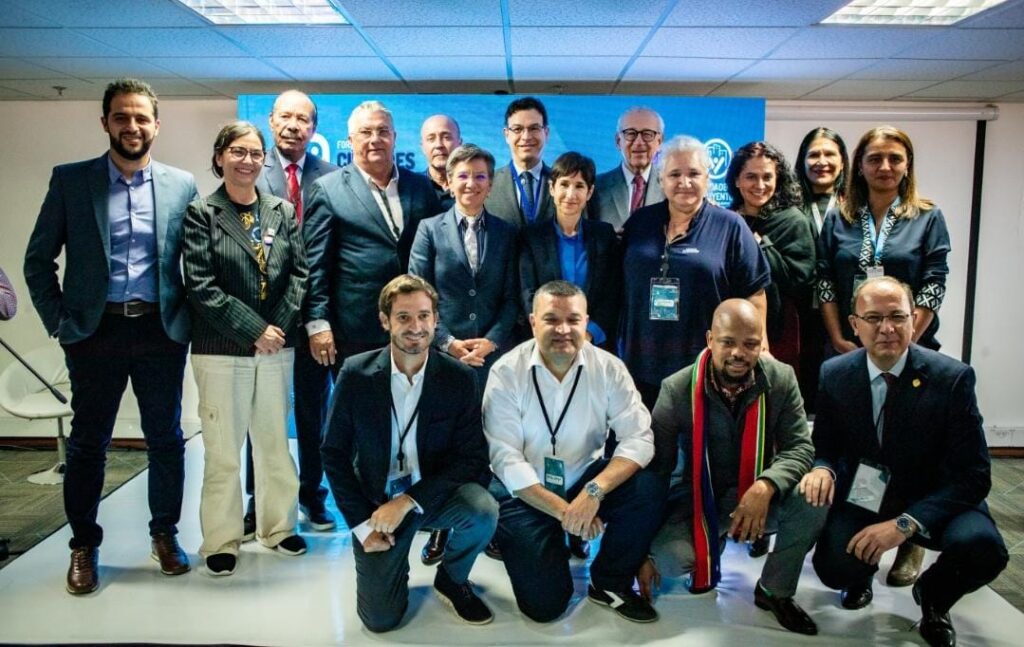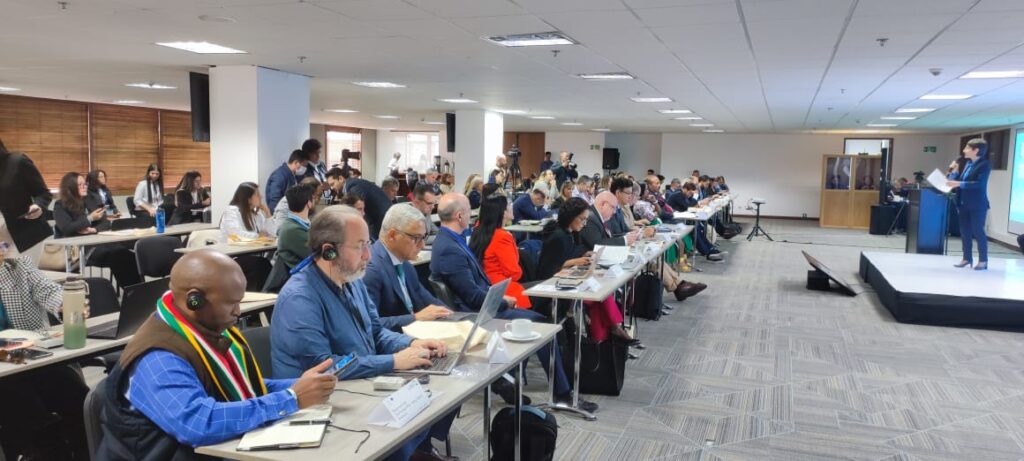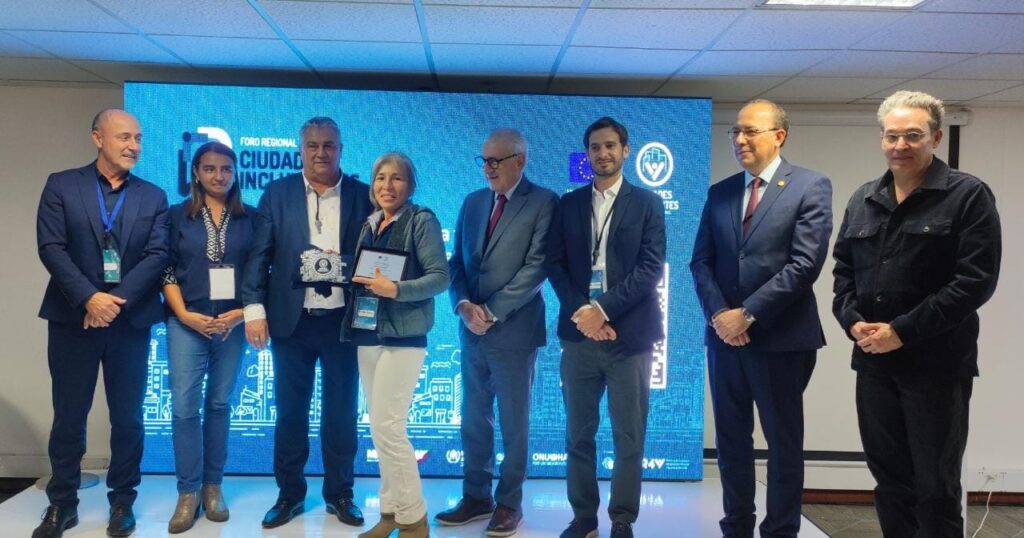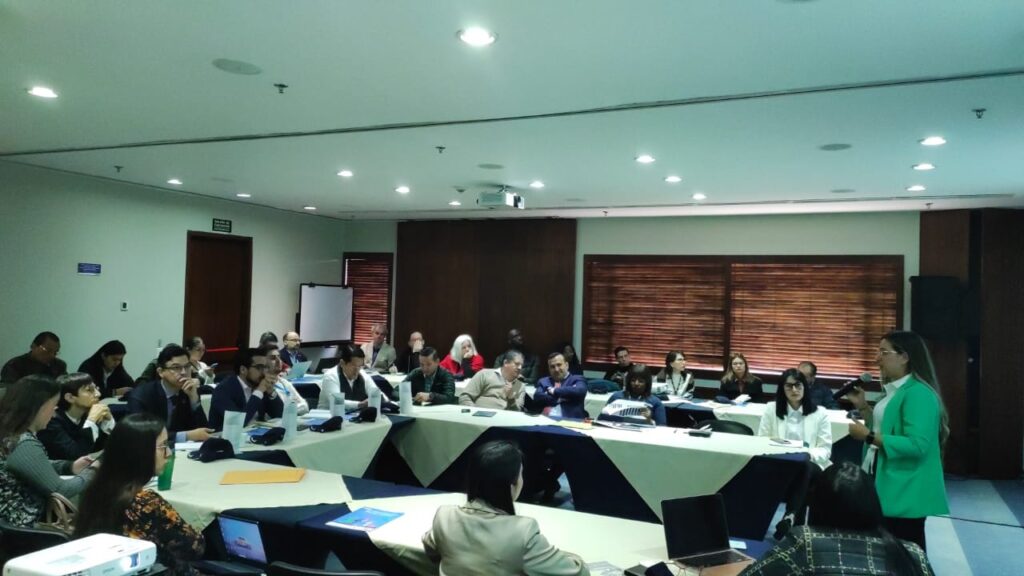
The Inclusive Cities Regional Summit: Integrating the Venezuelan refugee and migrant population in the cities of Latin America and the Caribbean, took place in Bogota on July 27 and 28, 2023. During the event, integration, equality and resilience of the migrant population and host communities in Latin America and the Caribbean experiences were shared, bringing together government officials, international cooperation actors and project participants. During the opening remarks, Gilles Bertrand, European Union Ambassador to Colombia, highlighted the qualities of the project and how it has brought inclusion and integration to various migrant families and host communities in the cities that are part of the program. On the other hand, Elkin Velasquez, UN-Habitat Regional Director for Latin America and the Caribbean, highlighted that the Inclusive Cities project has made possible to learn with local authorities that migration improves existing tools in urban development proposals for inclusion.
In this conection Mireille Girard, UNHCR Representative in Colombia, said the program has shown that a challenge can become an opportunity for socio-economic inclusion. In this connection, Diego Beltrand, IOM Representative, stated that the future of actions aimed at promoting the effective integration of migrants lies in the work carried out by local governments together with international cooperation. The opening remarks ended with the words of Leslie Esparza, Advisor of the Colombian Migration Agency, who pointed out that the rights of migrants have to be seen in neighborhoods every day and made a summary of the organization’s actions in favor of migrants.

Mayors from various Latin American cities shared successful experiences of integration in their territories. Claudia Lopez, from Bogota; Jairo Yañez, from Cucuta; Juan Carlos Cardenas from Bucaramanga and Carlos Maya, from Pereira represented the Colombian cities. Jose Montas from Boca Chica, Dominican Republic and Ana Reis from Cobija, Bolivia, completed the list of leaders. During this space, testimonies of national and international cooperation experiences that favor the effective integration of communities in situations of human mobility and the promotion of instruments and instances for the coordination of humanitarian attention, integration and development actions were also shared, addressing the importance of cities as integration and development platforms, the role of the community in inclusion and solidarity, and public policies and inter-institutional coordination towards effective integration and development. Giancarlo Casassa, Municipal Manager of Callao, Peru; Alfredo Carbonell, Manager of Social Development of Barranquilla, Colombia and Soninha Francine, Secretary of Human Rights and Citizenship of Sao Paulo, Brazil, were part of this scenario.
Subsequently, a high-level dialogue on public policies and inter-institutional coordination towards effective integration and development was held, in which national and international cooperation experiences were learned that favor the effective integration of communities in situations of human mobility and the promotion of instruments and instances for the coordination of actions of humanitarian attention, integration and development. In this space participated Rogelio Paredes, Minister of Housing and Territorial Planning of Panama; Vanessa Velasco, urban specialist at the World Bank; Rafael Mattar, Housing and Settlements Officer for UNHCR Americas; Bongumusa Zondo, eThekwini Municipality Officer and Douglas Ragan, UN-Habitat Specialist.
Then a community dialogue on the IntegrHabitat network and the role of the community as actors of inclusion and solidarity took place. Moderated by Juan Carlos Viloria, president of Venezuelans in Barranquilla, panelists spoke about the IntergHa-bitat network, which promotes habitat integration and co-creation centers, empowering communities to create neighborhood solutions towards inclusion, care, protection and community development. The following community leaders participated: Yasmina Hera, from Quito, Ecuador; Luis Castillo, from Lima, Peru; Andres Castro from Quibdo, Colombia; Sachi Duran from Boca Chica, Dominican Republic and Nelson Pajaro, from Bucaramanga, Colombia.

The work of community leaders from the cities that are part of the project was recognized; they shared their testimonies about integration, inclusion and solidarity in their respective territories as follows:
Colombia – Cucuta: Monica Hernandez and Lizeth Atuesta; Bucaramanga: Nelson Pajaro; Barranquilla: Jeneth Caicedo.
Ecuador – Quito: Sandra Torres and Yasmina Hera; Manta: Famny Cedeño.
Trinidad & Tobago – Chaguanas: Andreina Briceño.
Peru – Lima: Nurys Moran and Luis Castillo.
Panama – La Chorrera: Leika Ballesteros.
Dominican Republic – Boca Chica: Sachi Durán.
On the second day of the forum, three side events were held: The governance of local migration, led by IOM; Territorial approach and experiences from the accommodation and integration sector, moderated by the R4V platform and Data and migratory dynamics in Colombia: Inter-institutional challenges towards the integration of migrants, under the leadership of Migración Colombia.
Finally, the international participants and the leaders took two tours to learn about successful integration experiences in Bogota: Blocks of Care and Eco Neighborhoods.
This Inclusive Cities Regional Summit marked a milestone in the conversations on integration, inclusion and integration in the cities of Latin America and the Caribbean and the common challenge is to ensure that we have more inclusive cities and more supportive communities not only in our continent but in the world.
